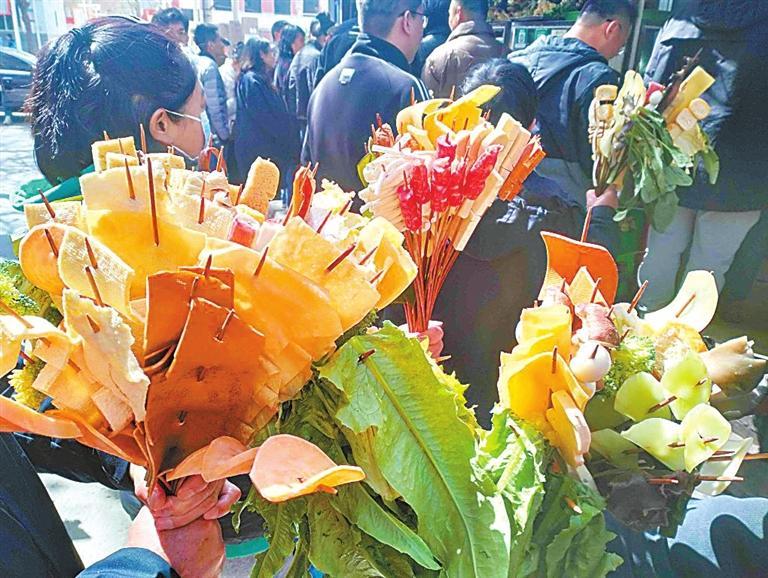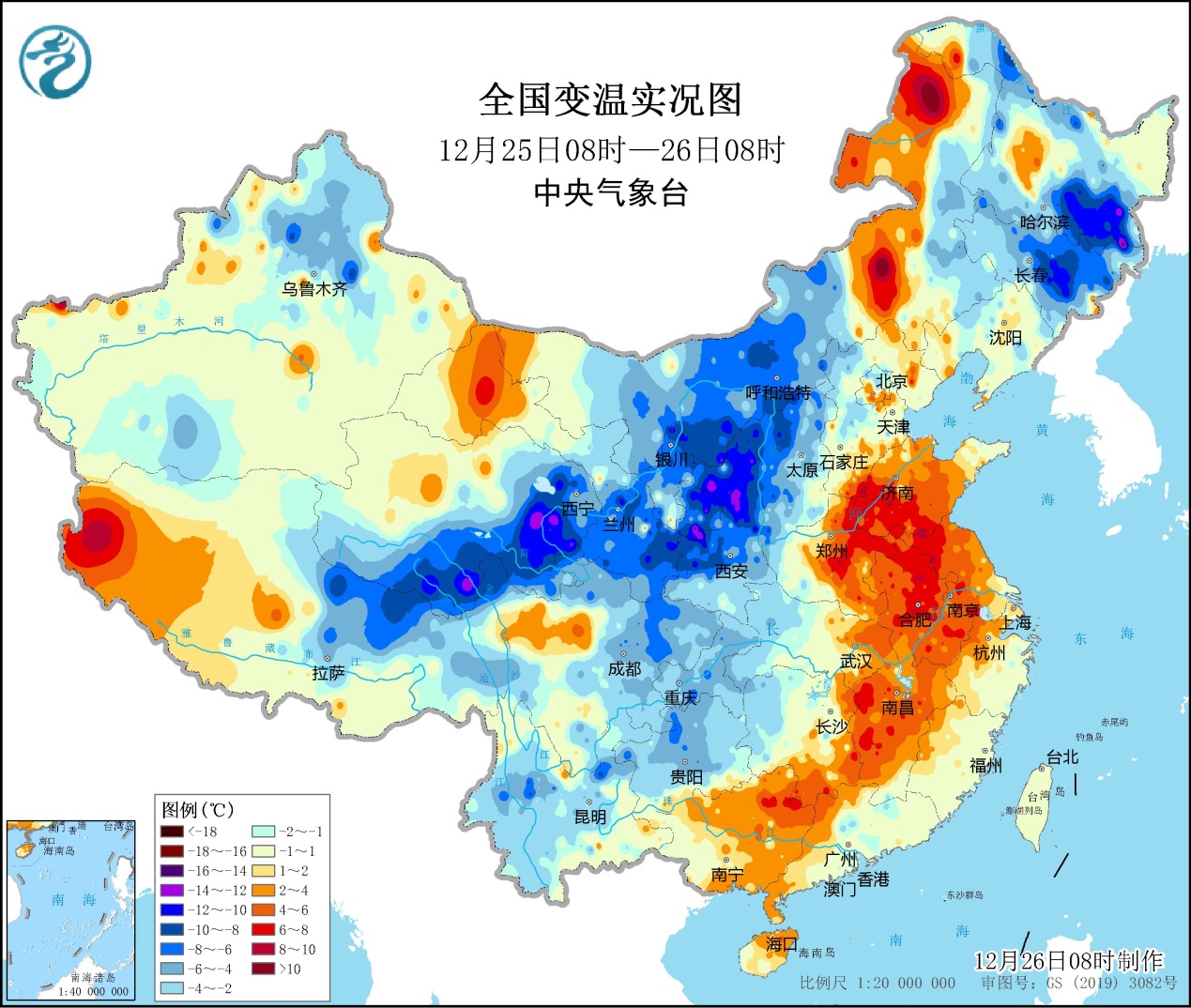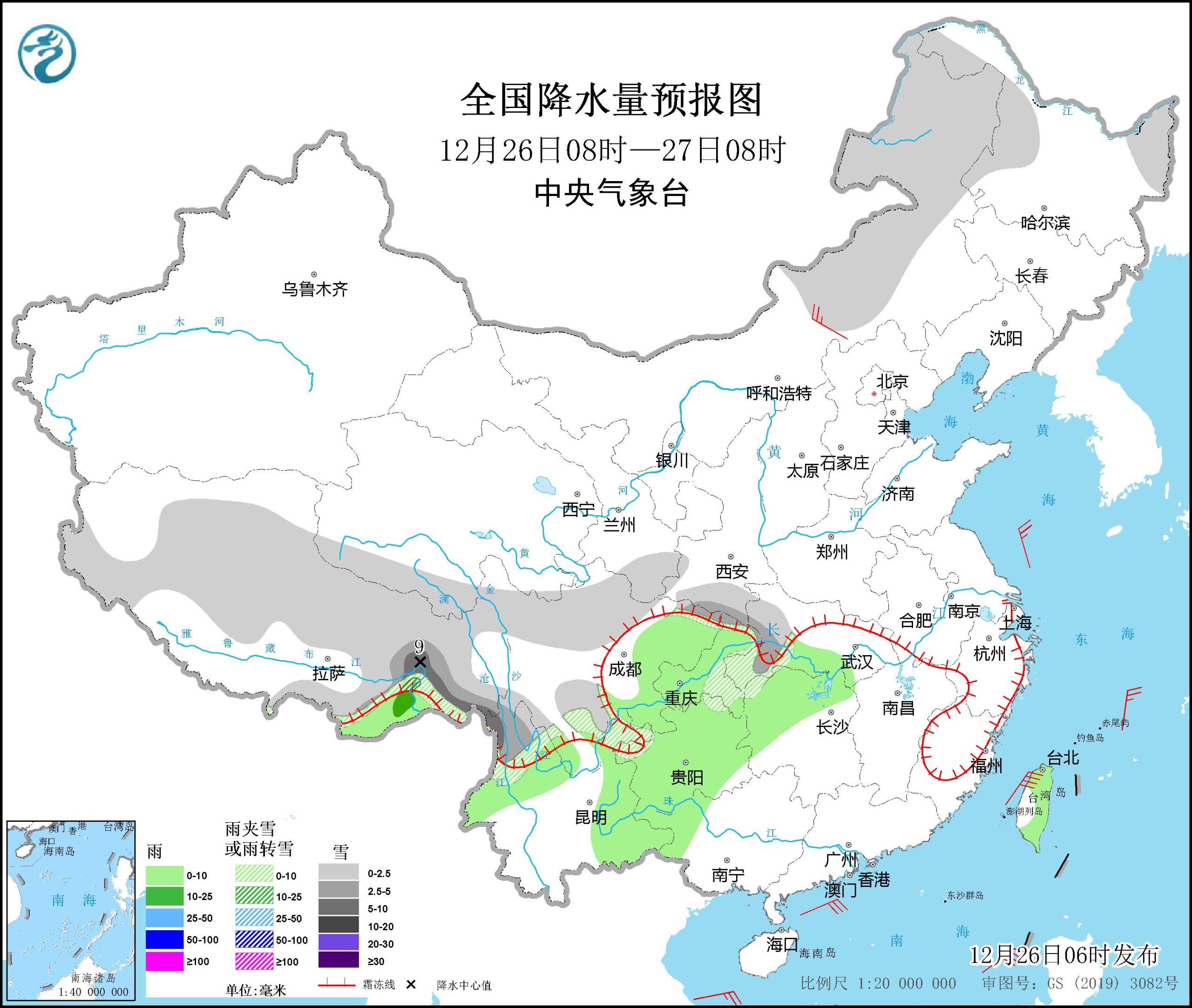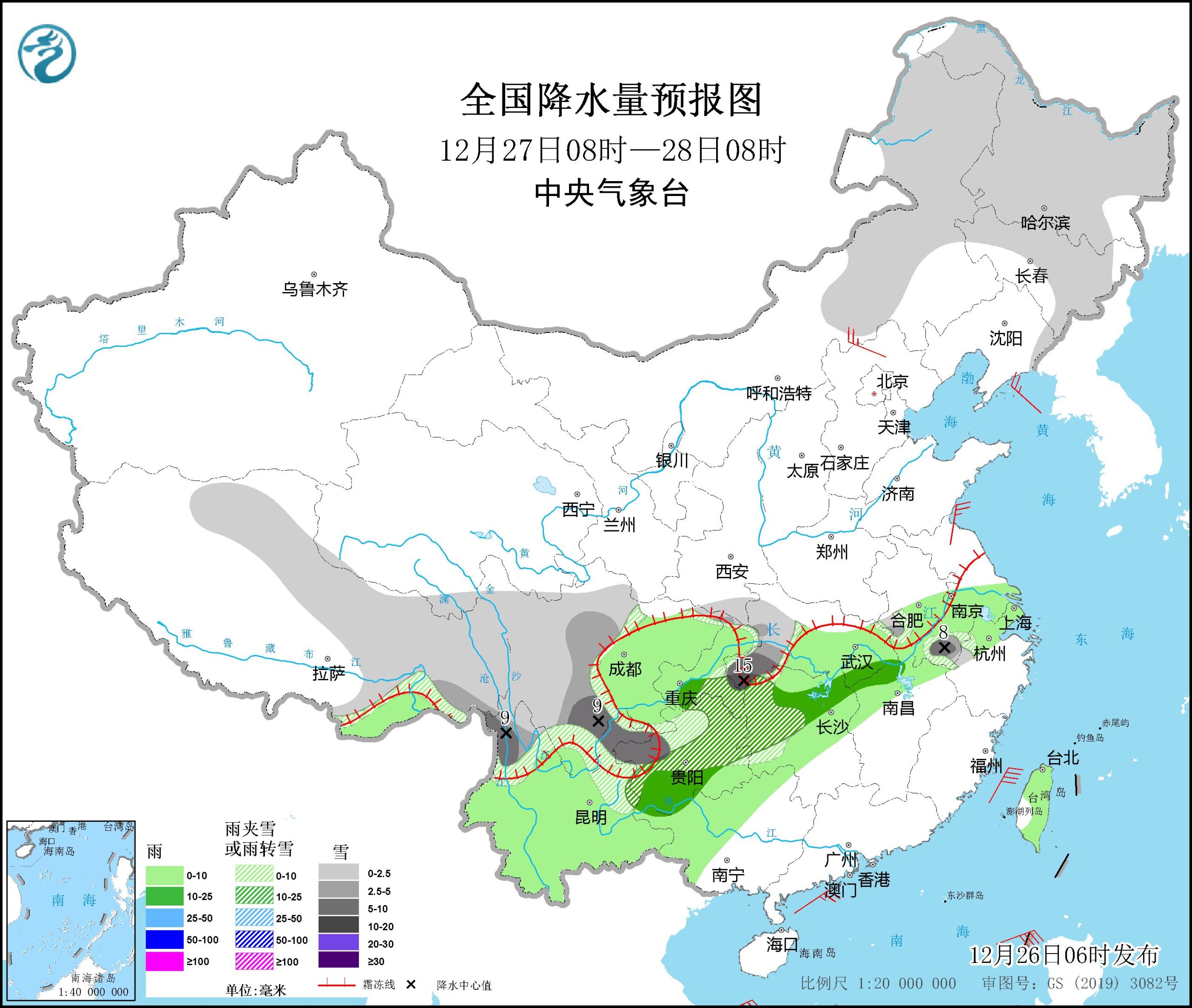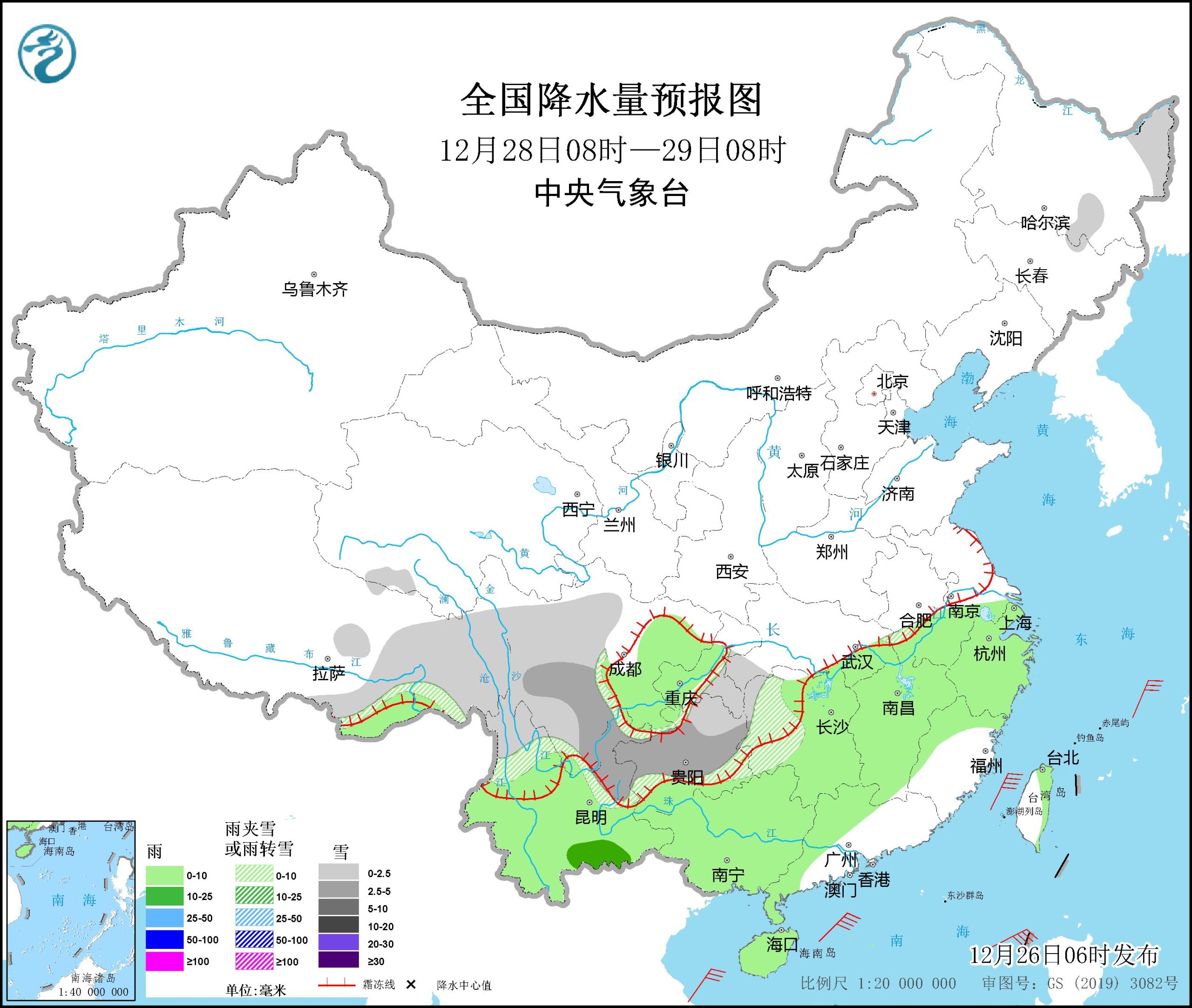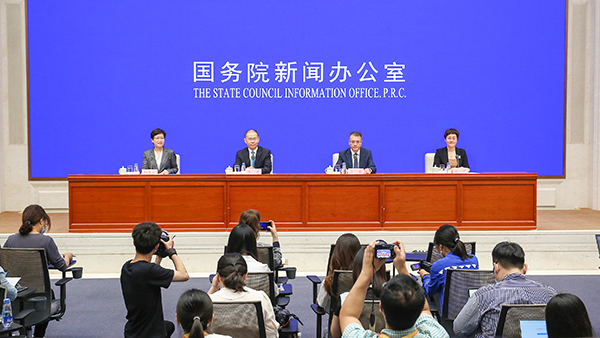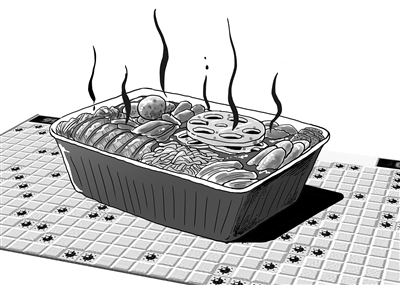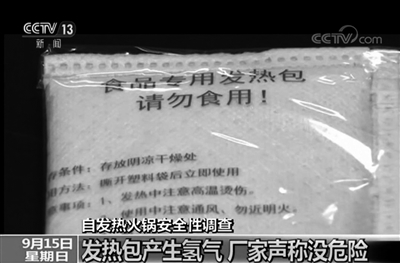The Paper Liu Zhengtu
Today, I want to share with you some reform stories that happened from the late 1970s to the mid-1990s. I called it the age of passion and romance. Many important reforms took place in that era. Although I personally experienced that era, I didn’t participate in much discussion about reform, especially in the 1980s. But ten years ago, in order to commemorate the 30th anniversary of reform and opening-up, I spent my summer vacation in Canada and wrote a book, from which I sorted out a lot of materials of that era and found it really wonderful. Today, with memories and some precious pictures, let’s walk into that passionate time and see how many important reforms started and how they were promoted.
I have always said that in the past 40 years, the most romantic and wonderful chapter of reform took place in the 1980s. Many economists tend to regard 1993 as a watershed in China’s reform and opening up. In November 1993, we convened the Third Plenary Session of the 14th CPC Central Committee, and adopted a decision on establishing a socialist market economic system. Because of this decision, the reform before and after 1993 was very different in style, and the reform after that was accelerated. In a few short years from 1994 to the end of 1990s, the major reforms needed to build a socialist market economic system have been basically completed. Most of the subsequent reforms are secondary or technical. It can probably be said that the decisive reform was completed when the old man Deng Xiaoping was alive.
Then, I’ll start from 1994.
1994 Jinglun Conference: Establishing Modern Company System
Professor Oliver hart, a famous American economist.
First, let me show you a photo, Professor Oliver hart. He is the winner of the 2016 Nobel Prize in Economics, a professor of economics at Harvard University in the United States, and once served as the head of the Department of Economics at Harvard University. He came to China in 1994 and attended an important meeting-Jinglun Meeting.
Jinglun Hotel, a famous Japanese hotel next to Beijing International Trade Center.
At that time, many famous economists attended the 1994 Beijing-Lund Conference. Oliver hart was one of them, including two other Nobel Prize winners in economics at the University of Chicago.
In 1994, the Jinglun Conference was held.
On August 23-26, 1994, the State Economic and Trade Commission and the research group of "Overall Design of China’s Economic System Reform" and "Comprehensive Analysis and Reform Design of China’s Tax System and Public Finance" jointly held an international seminar on "The Next Reform of China’s Economic System" in Beijing Jinglun Hotel. Some people think that it initiated the spread of the latest development of microeconomics in China, and introduced the reform into the deep research of microeconomic foundation, which is called "Jinglun Conference".
Along with Oliver hart, he came to China to attend the Jinglun Conference, and a very famous professor was Professor Aoki Masahiko.
Professor Aoki Masahiko, a famous Japanese economist, passed away in 2015 and was a professor of economics at Stanford University.
The "Jinglun Meeting" was actually discussing how to reform the state-owned enterprises in China, and when the meeting was held, the state-owned enterprises were facing a huge challenge-the debt problem. At that time, the debt problem of state-owned enterprises was the most puzzling problem for their development.
The topics of the meeting mainly include, how to reorganize state-owned enterprises? How to restructure the debts of state-owned enterprises? How to reorganize state-owned enterprises? At the "Jinglun Conference", Professor Oliver hart and Professor Aoki Masahiko made many valuable analyses and suggestions in these aspects.
Professor Oliver hart is a scholar who studies enterprise contracts, so he has a lot of ideas about it, and these ideas have actually influenced the reform of state-owned enterprises in China. In the later period, our methods of restructuring state-owned enterprises and restructuring the debts of state-owned enterprises, including the establishment of four state-owned asset management companies to solve the debt problems of state-owned enterprises, were all influenced by the topics discussed at the "Beijing-Lun Meeting".
Professor Aoki Masahiko put forward a very important concept at the Jinglun Conference: Insider Control)[ Editor’s Note: Insider control refers to the phenomenon that the operator controls the company under the premise of the separation of ownership and management right (control right) in modern enterprises, which is caused by the inconsistency of interests between the owner and the operator]. This concept has a great influence on our domestic economists. State-owned enterprises are prone to the phenomenon of "insider control". In other words, outsiders can’t help them solve the problem of "insider control", so state-owned enterprises must be reorganized. Including many of our current concepts on the reform of state-owned enterprises, such as "establishing a modern enterprise system" and "establishing current corporate governance", did not exist before 1994. It was not until the "Beijing-Lund Conference" that the decision on the reform and reorganization of state-owned enterprises became a consensus idea of change, and it was written into the relevant important documents of the central government many times.
The "Jinglun Meeting" was held to implement the spirit of the decision of the Third Plenary Session of the 14th Central Committee on establishing a socialist market economic system, because in this decision, changing the operating mechanism of state-owned enterprises and establishing a governance mode that is compatible with the market economy became the core issue.
The Third Plenary Session of the 14th CPC Central Committee was held in November 1993, which was the first time that the concept of "market economy" was clearly put forward after the reform in 1978. It has been 15 years since the Third Plenary Session of the 11th CPC Central Committee in 1978. The decision of the Third Plenary Session of the Twelfth Central Committee of the Communist Party of China in 1984 only mentioned "commodity economy" and failed to put forward "market economy". Although we say that the reform and opening up began in 1978, in fact, the Third Plenary Session of the 14th Central Committee in 1993 first proposed to establish a socialist market economy.
For our reform in the past 40 years, the Third Plenary Session of the 14th CPC Central Committee was a watershed. Because we admit that the purpose of our reform is to establish a socialist market economy, the reform has been accelerated after that. I have generally reviewed that in the four to five years after 1994, we have basically finalized the important reforms needed to establish a market economy system, such as fiscal tax-sharing reform, price liberalization, urban housing system reform, the introduction of commercial banking law, the merger reform of foreign exchange system and exchange rate, the strategic restructuring of state-owned economy and corporate governance reform in 1995, and the "grasping the big and letting the small" of state-owned enterprises in 1997.
In the past, we always said that China’s economic reform was gradual, crossing the river by feeling the stones and taking two steps back, but after the Third Plenary Session of the 14th CPC Central Committee in 1993, China’s economic reform became quite radical.
Deng Xiaoping’s speech in South China in 1992: China’s reform suddenly accelerated.
Before the Third Plenary Session of the 14th CPC Central Committee in 1993, there were controversies and differences on the ideological and theoretical levels in all aspects of reform. There are not only arguments between ideological circles and intellectuals and economists, but also arguments and differences of opinion within the party. It is the checks and balances produced by these open and closed debates that make the reform in the 1980s relatively cautious and slow.
However, in the 1990s, especially after Deng Xiaoping delivered a speech on the South in 1992, the ideological and political environment within the Party changed, and these arguments and differences still exist, but the reform has been ahead of the arguments. This is attributed to Mr. Deng Xiaoping’s "Southern Speech" in 1992, which promoted the market-oriented reform, and he did not advocate endless arguments, because that would delay the timing of reform. Deng Xiaoping once said during his southern tour in 1992 that "it is my invention not to argue".
The textbook The Chinese Economy, published by Professor Barry Norton of the University of California, San Diego, also tells the process and stages of China’s economic system reform. There is a similar statement in his book. He thinks that after 1993 and 1994, the process of reform in China suddenly accelerated.
This is obviously that the word "market economy" has opened the door for reform. At the Third Plenary Session of the 14th CPC Central Committee, the words "building a socialist market economy" were written into the decision, and Deng Xiaoping’s talk in the south played a very important role in promoting it.
Deng Xiaoping was in Wuchang, Shenzhen, Zhuhai and Shanghai from January 18 to 21, 1992.
Deng Xiaoping felt that his thoughts should be more emancipated and the pace of reform should be greater. Deng Xiaoping’s southern speech declared to the world: We should be more open, our reform will not go backwards, and our reform pace will only be faster. "
1990 Chinese New Year in Deng Xiaoping and Shanghai: Pudong will catch up later.
Deng Xiaoping came to Shanghai for the Spring Festival for five consecutive years from 1988 to 1992. I didn’t come in 1993, but I came to Shanghai for the Spring Festival in 1994. After 1994, he did not appear in public until his death in 1997.
During the Spring Festival in 1990, Deng Xiaoping told the leaders of Zhu Rongji and other cities that I made a mistake. At that time, Shanghai was not added to the four special zones. Shanghai is our trump card. It can be seen that Deng Xiaoping speaks highly of Shanghai and Shanghainese. He thinks that the development of Pudong in Shanghai is a bit late, but he also says that Shanghainese are smart and can certainly catch up. This was a conversation with Zhu Rongji at the end of January, 1990. After the Spring Festival, he returned to Beijing and told the central leaders that although I am retired now, I have one thing to ask you, that is, the development of Shanghai Pudong.
Under the impetus of Deng Xiaoping, the Central Committee immediately held a meeting on April 10th, 1990, and adopted a decision on the development of Pudong. On April 18th, 1990, then Premier Li Peng came to Shanghai to announce the development of Pudong.
Facts have proved that although the development of Pudong is later than that of the four special zones, after 28 years of development, Pudong has achieved great development achievements and achieved great success. The GDP of Pudong was 6 billion 28 years ago, and now it is 1 trillion. Shanghai’s GDP3 is 3 trillion, and Pudong accounts for 1/3.
In 1991, Deng Xiaoping came to Shanghai for the New Year. He said to the leaders at that time: "It is both a bad thing and a good thing to develop late. You can learn from the experience of Guangdong. " It can be seen that he has always been very concerned about Pudong.
The conception of special economic zones in 1979: a chain reaction triggered by an investigation report
Four special zones in Guangdong and Fujian were developed earlier than Pudong. However, Shekou in Shenzhen was developed earlier than Shenzhen Special Economic Zone.
In April, 1978, the Ministry of Foreign Trade and the State Planning Commission sent a delegation to Hong Kong and Macao. After returning, the delegation wrote a report, which suggested that we should dock with Hong Kong and Macao in two places near Hong Kong and Macao and try to do some export processing business. At that time, I chose two places: Zhuhai near Macau and Baoan County near Hong Kong, which is now Shenzhen. Later, this report was distributed to all the participants at the Third Plenary Session of the Eleventh Central Committee as a meeting material. This report is very important, and it is this report that triggered the idea of Shekou Industrial Zone and later Special Economic Zone.
Comments on Li Xiannian’s Investigation Report to Hong Kong and Macao.
Reading the biography of Yuan Geng (editor’s note: former Party Secretary of Shekou Industrial Zone), we can see his ups and downs life. Kang Sheng persecuted him and went to prison, but after he came out, he arranged a job in Hongkong’s China Merchants Bureau through Ye Fei’s relationship. When Yuan Geng died a few years ago, someone commented on him: "Without Yuan Geng, there would be no Shenzhen now." In fact, Yuan Geng is an advocate of Shekou Industrial Development Zone. At that time, he advocated the establishment of Shekou Industrial Development Zone, which was stimulated by the investigation report of Hong Kong and Macao. At that time, he said, "Why can’t we build a freight terminal in Shekou? He calculated the cost of the industrial zone. He said that the cost of Shekou is very different from that of Hong Kong. If there is a Shekou industrial zone, goods from Hong Kong can be placed at the dock in Shekou, because the rent in Shekou is relatively low.

Cover of Yuan Geng’s memoirs
Under his active promotion, Guangdong established Shekou Industrial Zone near Hong Kong. Shekou Industrial Zone is earlier than Shenzhen, Shenzhen Special Zone was formally established in 1980, and Shekou Industrial Zone was established in 1979.
The economic investigation report of Hong Kong and Macao actually triggered a series of events: Yuan Geng proposed the establishment of Shekou Industrial Zone, and Guangdong Provincial Party Committee Secretaries Xi Zhongxun and Wu Nansheng (Editor’s Note: Wu Nansheng, the first Party Secretary of Shenzhen Special Economic Zone) proposed to the central authorities to establish an export processing zone in Shantou (at first, their idea was to establish an export processing zone in Shantou. Why are you in Shantou? They quoted the classics as saying that Engels mentioned Shantou in his book. At the same time, Fujian also proposed to establish a special economic zone.
As a result of discussion in the Central Committee, everyone agreed in principle to establish a special zone. The key issues are the size of the special zone and the name of the area.
What’s the name of the special zone? At first, it was called export processing zone. Some people objected that "Taiwan Province has export processing zones, but we can’t have them." Finally, let Deng Xiaoping decide. Deng Xiaoping said: It can be called a special zone, and Shaanxi-Gansu-Ningxia is a special zone.
What is the area of the special zone? More than 300 square kilometers? The SAR Office of Guangdong Province thinks that this area is too large, and metaphorically says that "the special zones in the world are not as big as more than 300 square kilometers". Some people object: "This special zone is too big. Do you want a bigger special zone than the Shaanxi-Gansu-Ningxia Special Zone?" Some people even said, "It’s boundless." The sentence "infinitely big" was very serious at that time. It can be seen that many people are opposed to the establishment of a special zone with such a large area. In the end, the Central Committee decided to build a special zone, which is called a special economic zone, on the advice of Deng Xiaoping, and the Shenzhen Special Zone covers an area of 327 square kilometers.
In 1979, the Shenzhen Special Economic Zone was not established, but there was a local special economic zone regulation in Guangdong Province-Guangdong Special Economic Zone Regulation. After Guangdong reported to the Standing Committee of the National People’s Congress, the Standing Committee of the National People’s Congress passed this regulation on August 26th, 1980, which was the first local regulation in China history to be discussed and passed in the National People’s Congress Standing Committee (NPCSC). This historic regulation was aimed at the Shenzhen Special Economic Zone. So August 26th is the day when Shenzhen was founded, and it is also the day when Shenzhen Special Economic Zone was founded.
However, since its inception, Shenzhen has been facing the debate of "whether it is surnamed Zi or surnamed She".
The establishment of the special zone in 1980 was aimed at introducing foreign capital, so it would certainly lead to an ideological debate at that time. The practice of establishing the special zone would definitely conflict with the Marxist classical writers and the ideology of our ancestors, so we kept arguing.
In the situation that Shenzhen has just been established for one year, the central government has been somewhat shaken, including the top management, and proposed to make some adjustments in policies. At that time, Wu Nansheng, as the party secretary of Shenzhen, was under great pressure. In 1982 and 1983, there was a big discussion about Shenzhen in China. This discussion is very intense in the ideological circle and within the party. At that time, many people said, "Can you still see the shadow of socialism when you go to Shenzhen?" So at this time, it is even more necessary for Deng Xiaoping to really stand up and endorse Shenzhen, otherwise Shenzhen will face the risk of being shut down.
In January 1984, Deng Xiaoping visited Shenzhen and wrote the famous sentence: The development and experience of Shenzhen proved that our policy of establishing special economic zones was correct.
On January 26, 1984, Deng Xiaoping wrote an inscription for Shenzhen Special Economic Zone: "The development and experience of Shenzhen prove that our policy of establishing special economic zones is correct."
But in February 1985, Hong Kong’s Wide Angle Mirror magazine published an article by a young scholar, Chen Wenhong, "What’s the problem in Shenzhen? 》。 Chen Wenhong visited Shenzhen in 1985, that is, five years after the establishment of Shenzhen Special Economic Zone. He found that in fact, Shenzhen attracted not much foreign investment, but all the mainland capital, and all the mainland provinces had a lot of hot money in Shenzhen. He also calculated that the per capita purchasing power of Shenzhen was several times higher than that of Shanghai and Beijing to prove it.
Because everyone thinks that Shenzhen represents business opportunities and opportunities, you can make a lot of money by investing in Shenzhen. And mainland tourists also go to Shenzhen to buy things, because Shenzhen can buy things from Hong Kong.
Chen Wenhong wrote in the article: Shenzhen Special Economic Zone has not achieved the widely publicized development model of "focusing on industry, focusing on foreign investment and focusing on export". He accused Shenzhen’s prosperity of relying on "importing goods and materials to earn money in the domestic market". Although Chen Wenhong’s argument method has been questioned a lot, there are not a few people who hold similar views with him.
He calculated a simple account. In 1985, the total retail sales in Shenzhen divided by the population in Shenzhen was equal to the purchasing power of Shenzhen per capita. He calculated at that time that the purchasing power of Shenzhen per capita in 1984 was more than 4,000 yuan. At the same time, he calculated the per capita purchasing power of Beijing and Shanghai, which was only over 700 RMB, from which he concluded that the prosperity of Shenzhen depended on the purchasing power of the mainland. Therefore, he concluded that Shenzhen did not achieve the goal set when the SAR was established: it wanted to introduce foreign capital.
So his article once again caused a lot of controversy. Originally, Deng Xiaoping wrote this passage in 1984, so don’t argue any more. However, the article "What’s the Problem in Shenzhen" published by Chen Wenhong in 1985 once again pushed Shenzhen to the forefront and questioned the legitimacy and necessity of the establishment of Shenzhen Special Economic Zone again.
Until 1992, Deng Xiaoping went to Shenzhen to speak in the south. Only then did we see that Shenzhen was indeed developing along the direction envisaged in those years (export processing zone to attract foreign investment). What I saw in the early mid-1980s was that the mainland’s hot money wandered around there. By 1992, this phenomenon had been very rare. Shenzhen has truly become an export-oriented export processing zone.
In any case, Shenzhen is very successful among the four special economic zones. Today’s Shenzhen has become one of the four first-tier cities called "North to Guangzhou and Shenzhen". Now, Shenzhen’s GDP has surpassed that of Guangzhou, and its total GDP has exceeded 2.2 trillion. Now, Shenzhen has become the cradle of hard technology. A large number of entrepreneurs are willing to start a business in Shenzhen.
Now the Luohu port in Shenzhen.
When the escape from Hong Kong was the most serious, Vice Premier Gu Mu stood on the bank of Luohukou, Baoan County, and stood on the port bridge from Luohu to Hong Kong, saying, "I hope that one day, more people from there will come here." Today, the railway bridge at Luohu Port means that more Hong Kong people are going from Hong Kong to Shenzhen. At that time, the goal expected by Vice Premier Gu Mu has been achieved.
In 30 years, since 1980, great changes have really taken place in Shenzhen. I believe that in the late 1990s, the development model of Shenzhen has basically taken shape. Shenzhen has become an open and more market-oriented special economic zone. I believe that Shenzhen is more developed than many cities in the mainland, and Shenzhen’s economic development model is also a very important reason why it can dominate the high-tech industry now.
The Third Plenary Session of the Twelfth Central Committee in 1984: The focus of reform shifted from rural areas to cities.
When people were debating whether Shenzhen was a surname of capital or a surname of society, the Third Plenary Session of the 12th Central Committee was held in 1984, and the Decision of the Central Committee of the Communist Party of China on Economic System Reform was issued. In other words, when Shenzhen is engaged in construction in full swing, the economic system in most parts of our country is still in the era of planned economy.
In October 1984, the Third Plenary Session of the Twelfth Central Committee adopted the Central Committee of the Communist Party of China’s decision on economic system reform. Everyone is very surprised. Didn’t we start reform and opening up in 1978? But in fact, before 1984, our overall reform was in rural areas and agriculture. Only after the promulgation of the Decision on the Reform of the Socialist Economic System in 1984 (hereinafter referred to as the Decision) did the focus of economic reform shift to cities.
Deng Xiaoping spoke highly of this decision, saying that it was innovative to have something that our ancestors had never said. So what did the "Decision" in 1984 say that our ancestors didn’t say? The "commodity economy" was mentioned for the first time. At that time, we dared not mention the socialist market economy at all. In the Decision, we established that the goal of reform is to establish a socialist commodity economy, not a socialist market economy.
People who study Marxist political economy argue about "what is a commodity" all day. The corresponding product of the commodity. Market economy corresponds to commodity economy at that time, while planned economy corresponds to product economy at that time. Commodity economy is one step closer than product economy. So what is a commodity? It can be used as an exchange. Products cannot be exchanged, and only when they can be used for exchange can they become commodities. So at that time, the socialist commodity economy was written in the "Decision" of the Third Plenary Session of the Twelfth Central Committee. In Deng Xiaoping’s view, it was already something that the ancestors had not said. Perhaps Deng Xiaoping saw that it was not too far away from the market economy.
Therefore, since 1984, the reform in China has really started. Before 1984, the reform was spontaneous. After the "Decision" in 1984, we began to consciously and systematically promote the reform in the city.
However, when the "Decision" was issued, China’s economy experienced serious and growing inflation.
In the era of planned economy, there was no inflation. Because the price is set by the government. But in the era of planned economy, what will happen if demand exceeds supply? There will be people in need who have to wait in line. However, when the "Decision" was promulgated in 1984, in fact, the price was already somewhat loose. The government’s pricing on various items, including means of production and consumer goods, has begun to loosen. In other words, some phenomena that partially reflect the relationship between supply and demand have begun to appear in the market. As a result, inflation was out of control, and this phenomenon continued intermittently until 1987, which was slightly controlled in 1987 and rebounded in 1988. Therefore, when we issued the Decision of the Central Committee of the Communist Party of China on Economic System Reform, China’s economy has undergone a very interesting change. It is no longer a completely classic planned economy, and many factors of market exchange have begun to appear, which has pushed up the price.
In the mid-1980s, an East German economist visited Beijing. After listening to many introductions about China’s economic system reform, he said: "I think China’s reforms are all micro-reforms, and there is no macro-reform." He hinted that China did not pay attention to macro-stability in micro-reform.
As you can imagine, in the era of planned economy, demand is a serious shortage, demand is suppressed, and demand is a huge energy. Once it is left unchecked, prices will soar in the case of a serious shortage of supply. This explains why the government found that there was no way to control inflation at that time, because the economic policy at that time had no concept of macro-control.
When the Third Plenary Session of the Twelfth Central Committee proposed to promote the reform of urban economic system, we were already faced with the problem of macroeconomic instability. However, at that time, the decision on reform was still only microeconomic reform.
Throughout the 1980s, especially from 1984 to 1988, the most perplexing problem faced by the State Council was how to continue the reform of planned economy in cities when the macro economy was out of control and inflation pressure remained high.
Bashan Wheel Conference in 1985: the Starting Point of Macro-management
From September 2 to 8, 1985, more than 30 Chinese and foreign economists took a cruise ship "Bashan" from Wuhan to Chongqing, and held an "International Symposium on Macroeconomic Management" on the ship, which was later called "Bashan Wheel Conference". The oldest economist in China is Mr. Xue Muqiao, who was 81 years old. The youngest participant was Guo Shuqing, 29, who was still studying in China Academy of Social Sciences.
Group photo of all participants in Bashan Wheel Conference.
The importance of Bashan Round Meeting lies in that it made our reformers and economists understand the importance of macro-stability and macro-demand management for the first time, and also helped us better understand the importance of supporting reforms.
The Bashan Round Meeting was jointly organized by china society of economic reform, China Academy of Social Sciences and the World Bank. A total of seven or eight topics were discussed. The most important topic was: Why did inflation occur during the economic system reform? How to control inflation? What conditions does the reform need? How will macroeconomic imbalance affect reform? In what way should the reform be promoted?
James Tobin, the winner of the Nobel Prize in Economics in 1981, and Janos Kornai, a Hungarian economist, were invited to this meeting. There are also economists from Britain and Japan.
The picture on the left shows James Tobin, winner of the 1981 Nobel Prize in Economics, and the picture on the right shows Janos Kornai, a Hungarian economist.
At the meeting, james tobin explained why inflation appeared in the process of reform, because wages in China rose too fast. He pointed out that since the rate of price increase is equal to the nominal wage rate minus the labor productivity, if the labor productivity increases, the wages will rise with it, which will not lead to price increase. However, if the rising rate of labor productivity is lower than that of nominal wages, and wages are artificially high, then prices will definitely rise.
In view of the pressure of the expansion of consumer funds and rising wages faced by China at that time, he even suggested that this formula (price increase rate = nominal wage rate-labor productivity) should be written down and put in the office of every state-owned enterprise manager and president of state-owned bank, so that they can always bear in mind that nominal wages should follow labor productivity.
Colne had experienced partial economic reforms in Hungary, which made his speech focus on the more basic reform mode. That is to say, there will be several ways to transition from planned economy to market economy, which is more feasible. His analysis has a great influence on China economists. His book "Shortage Economics" made him famous in China.

The picture shows a group photo of four economists attending the Bashan Wheel Conference.Among them are famous economists Xue Muqiao (first from left, former Secretary-General of the Finance and Economics Committee of the State Council and Director of the Bureau of Private Enterprises, Director of the National Bureau of Statistics, Director of the National Price Committee, and Director-General of the the State Council Economic Research Center), Ma Hong (second from left, former President of the China Policy Science Research Association) and Wu Jinglian (first from right, famous economist, researcher of the the State Council Development Research Center, and a leading economist in China).
"Moganshan Conference" in 1984: Price Double Track Transition?
The emergence of inflation led to the Bashan Wheel Conference in 1985. However, the price increase is not only the product of price reform, but also affects the process of price reform in turn. In the early stage of reform, how should the price reform be promoted? How can we minimize the impact of price reform on the interests of all aspects of society? This is the most basic reform problem after the central government decided to shift the focus of reform from rural areas to cities in 1984.
But in fact, just two months before the Third Plenary Session of the Twelfth Central Committee of the Communist Party of China made a decision on economic system reform, that is, in September 1984, a meeting of young economists was held in Moganshan, Zhejiang Province, which was called "Moganshan Meeting" in history, and its full name was "Academic Seminar for Young and Middle-aged Economic Scientists". The conference was aimed at national essay writing, and received 1,300 contributions. Among them, 120 were selected and divided into seven groups. They stayed up all night to discuss the reform plan of how to transition from planned economy to market economy. It is said that the most heated discussion and debate is the price group. As time goes by, the Moganshan Conference is also famous all over the world because of the debate on price reform.
The meeting not only attracted young economists from all over the country to participate enthusiastically, but also the leaders of Zhejiang Province at that time gave speeches. Zhang Jinfu, the central leader from Beijing, went to Hangzhou specially to listen to the summary report of the Moganshan meeting, and the person who reported to Zhang Jinfu was Watson.
Zhang Jinfu, former member of the Standing Committee of the Central Committee of the Communist Party of China Advisory Committee and former State Councilor.
As a result, more than 20 years later, there was a famous debate between Watson and Zhang Weiying who also attended the Moganshan Conference, a debate about the right of invention, that is, who put forward the reform plan of the dual-track system price at the Moganshan Conference.
Zhang Weiying was a graduate student at Northwest University. Zhang Weiying said that this was his first time to fly from Xi ‘an to Hangzhou. This meeting is really the first time for many people.
This is a heated debate. Because I was writing that book about reform and opening up at that time, which was going to write "the reform of the two-track price system", both sides came to me to provide me with information. I remember one night when I was asleep, Zhang Weiying called me from Hong Kong. He seemed to be visiting the Chinese University of Hong Kong. He said, "Because you wrote this book, I’m going to copy a lot of original materials and send them." It’s very difficult for me to write this history, because I didn’t attend this meeting. I can only look at the memories of many people. At that time, there were many people involved in the discussion in the price group, some of whom later wrote reminiscence articles, and some participated in the debate between Watson and Zhang Weiying.
Zhang Weiying, co-founder of National Development Research Institute of Peking University (formerly China Economic Research Center of Peking University).
According to the information I have, the idea of price dual-track reform once appeared in Zhang Weiying’s article when he was studying at Northwest University, but it was not put forward at Moganshan Conference. According to the information provided by many people, at the Moganshan meeting, Zhang Weiying advocated "liberalizing the price", that is, "releasing the faction", while another faction, called "dispatching", advocated "adjusting the price and gradually reaching the designated position" instead of "liberalizing the price and reaching the designated position at one time". Watson seems to be a comprehensive school, that is, "the combination of adjustment and release", which is also a plan clearly suggested in the price report based on discussion. I guess that when Watson reports to Zhang Jinfu, he may report according to the idea of dual-track system.
Although the word "dual-track system" became the idea of price reform at the Moganshan meeting later, the word "dual-track system" was not invented by someone. Earlier, in 1982 and 1983, some important means of production, such as coal, had a double-track price phenomenon, otherwise there would be no inflation in China’s economy at that time. In other words, before the Moganshan Conference, the phenomenon of "price dual-track system" already existed.
However, the phenomenon of double-track price has really attracted the attention of economists, and many economists think that the double-track price system may be a feasible reform idea. After all, the risk of price liberalization at one time is too great, so it sounds reasonable to slowly adjust the planned price, and at the same time allow more excess output to be priced according to the relationship between supply and demand outside the plan, and gradually move towards the market price.
However, during the transition period, the dual-track price system means that "planned price" and "unplanned price" coexist. As you can imagine, according to such a dual-track reform, there will inevitably be a phenomenon of cross-track. Because the market price is high and the planned price is low, someone will definitely find a way to transfer the planned quota to the market, and there will be so-called collusion.
In 1985, a phenomenon appeared in China’s economy, which was called official defection, that is, the quota of official reselling plan. If you have connections, you go to the central ministries and commissions to approve a note, and you go to a steel factory to get 100 tons of steel at the planned price. Then, you buy a batch of steel at a low price with this note, and then sell it in the market at a market price higher than the planned price, and you gain huge benefits in the middle. In other words, connections and cops can bring you huge income. For a time, officials have become a corruption phenomenon that we are facing, and it has spread rapidly.
1986: the contest of reform plan
As a transitional way from planned price to market price, when many people discuss the advantages of the dual-track price system, economists such as Wu Jinglian oppose the idea of the dual-track price system. They are opposed to moving closer to the market price through the two-track method. They advocate "a basket of reforms". They believe that many factors in the economic system reform are interrelated, and you can’t just do part of the marketization. If you only do part of the market, it will definitely bring market chaos. At that time, an economic reform design office was established in the State Council, where the economists of the overall reformists were located.
They believe that this method of dual-track system not only leads to inflation, but also leads to corruption, official defection and rent-seeking. At that time, Professor Wu Jinglian and his research team wrote a lot of reports to the Central Committee, and convicted the two-track pricing system of eight crimes.
In the report, the "overall reformists" advocated that "a basket of reforms" should be promoted. In 1986, they submitted a report on the overall reform to the Central Committee, and then the State Council also held a meeting, which was also passed by the Central Committee. Regrettably, two months later, the "reform package" was shelved, so Wu Lao (Wu Jinglian) was deeply concerned about this matter. Wu Lao also mentioned this in his textbook Contemporary Economic Reform in China. Originally, the State Council planned to carry out reform according to this plan, but why did it go back on its word and give up later? I think, at that time, under the macroeconomic background of serious inflation, the "basket reform" plan was too risky. The State Council decided to suspend this reform plan, and instead decided to start the reform of enterprise ownership.

The picture shows the main representatives of the "overall reformist". From the right are: Zhou Xiaochuan (former governor of the People’s Bank of China), Li Jiange (chairman of China International Finance Corporation and former deputy director of the State Council Development Research Center), Lou Jiwei (former minister of finance and former deputy director of the State Council Development Research Center), Wu Jinglian (famous economist and researcher of the State Council Development Research Center), Wu Xiaoling (former vice president of the People’s Bank of China and former director of the State Administration of Foreign Exchange), Guo Shuqing (currently chairman of the Insurance Regulatory Commission of the Bank of China,
From 1984 to 1987, faced with severe inflation, policymakers dared not take risks, and finally decided to shift the focus of reform to enterprise reform, and carry out contract system and joint-stock system reform of state-owned enterprises.
The ownership reform of state-owned enterprises is obviously the direct result after the "basket reform" scheme was shelved, and then the debate turned to enterprise reform. At that time, an economist had been calling for enterprise reform. He has a famous saying that "if China’s economic reform fails, it must be because of price reform;" If it succeeds, it must be because of enterprise reform. " This man is Professor Li Yining from Peking University. Therefore, Li Yining also has a nickname called Li Shares. Because Li Yining advocated that state-owned enterprises should carry out ownership reform and implement joint-stock system.
At that time, the central government gave up the plan of "overall reform" of the economic system represented by Wu Jinglian, and turned to enterprise reform, which virtually supported the plan of joint-stock reform of state-owned enterprises in Li Yining. At that time, I saw a sentence in the article introducing Wu Lao on the China Academic Information Network, saying that he proposed many plans to the government, which were proved to be correct afterwards, but they were often not adopted by the central authorities. I think the most important scheme that has not been adopted is the "overall reform theory" and the later "price breakthrough" scheme.
wu jinglian(Left)And Li Yining.(right) Both of them are famous economists and leading economists in China.
Wu Lao and Li Lao were born in the same month and studied in the same middle school. But for quite a long time from the late 1980s, the two of them didn’t face each other. Until 2008, when Peking University commemorated the 30th anniversary of China’s economic reform and opening-up, they were invited to participate in the commemorative activities together, and finally attended the ceremony on the same stage, face to face. Li Yining and Wu Jinglian are two representative economists who have made great contributions to the economic reform in China.
In the era of reform in the last century, economists participated in the process of reform in various ways. Everyone can say, "There is my contribution" and "There is my suggestion". Today, this phenomenon is almost impossible. That era was really romantic.
December 1978 Xiaogang Village’s "Fixed-output Household": Bottom-up Agricultural Reform
When it comes to agricultural reform, we should mention Xiaogang Village in Fengyang, Anhui Province, and Wan Li, the former chairman of the National People’s Congress.
When Wan Li was in charge of Anhui Province, a historic event happened in Xiaogang Village, Anhui Province. Eighteen farmers spontaneously carried out the secret action of "fixing production quotas to households" and made this famous contract. This is the winter of 1978.
The picture shows the written contract made by 18 villagers in Xiaogang Village in December, 1978 for the secret "production contract". There are 22 people on this list, including their wives and 18 people with fingerprints. Because it is stipulated in this agreement that if someone has an accident, others will raise their children until they are 18 years old, so this contract requires their wives to be present. The original handprint is kept in the Chinese History Museum, and a copy is kept in the museum in Xiaogang Village.
In November 1978, the 18 villagers in Xiaogang Village secretly discussed in Yan’s family that they would "fix the production quota to each household" and distribute the land to each family. It is risky to do this, and if it is leaked, it will lead to decapitation, so they pressed their handprints and promised to raise their children until they are 18 years old. This is a very tragic thing.
It is said that Wan Li, who was in charge of Anhui Province, knew about this matter, and Wan Li secretly sent people to Xiaogang Village to learn about the situation. Because the 18 farmers in Xiaogang Village worked for a year, the village next to them found that the village had an unexpected harvest, so they found that they secretly distributed the land to their families, so someone reported it to them. We can reasonably speculate that Wan Li knew about it at that time. However, Wan Li wisely called Deng Xiaoping to ask what to do. It is said that Deng Xiaoping’s reply was very simple, and he just did not say anything.
Wan Li thought that what Xiaogang Village did spontaneously was the right way, so he wrote a report to the Central Committee and got the support of Deng Xiaoping. Then, he wrote a report to the State Agriculture Committee and the Ministry of Agriculture, suggesting that the "household contract responsibility system" should be fully implemented, but the Ministry of Agriculture was very conservative. Wan Li was so upset. In 1980, Wan Li went to work in the Central Committee and served as the Deputy Prime Minister, in charge of agriculture. After working in the Central Committee for one year, starting from 1981, he proposed a comprehensive rectification of the Ministry of Agriculture to eliminate resistance.
During the discussion in the Central Committee, Wan Li and Hu Yaobang reached a consensus, advocating the promotion of "fixing production quotas to households" throughout the country. However, the resistance was particularly great, and there were great differences of opinion among the central decision-makers. The final decision was a compromise. The household contract responsibility system was implemented in different regions, not in developed regions, but only in particularly poor places, and everything in between also depends on the situation. Therefore, we can think that the household contract responsibility system was implemented "conditionally" at that time. However, Wan Li still thinks that farmers are eager to distribute their fields to their families.
At this time, Hu Yaobang stood on Wan Li’s side and gave Wan Li a lot of support. Despite great resistance, Wan Li and Hu Yaobang are still planning to draft a document to promote the household responsibility contract system.
In any case, Hu Yaobang and Wan Li are still actively promoting the "fixed production quotas" and finally persuaded the old comrades in the Central Committee. This formed the the Central Committee of the Communist Party of China No.1 Document in early 1982 (until now, this tradition continues, and the No.1 document issued by the Central Committee of the Communist Party of China every year must be about agriculture), agreeing to gradually promote the implementation of the household responsibility contract system nationwide.
In 1982, the entity of the people’s commune still existed. A year later, in 1983, the people’s commune was substantially disintegrated and the township government was established. In other words, the people’s commune was completely replaced by the township government in 1983. In fact, it was not completed until the end of 1984. Therefore, when the household contract responsibility system was implemented in 1982, the people’s commune was still there. But without the joint efforts of Hu Yaobang and Wan Li, it is estimated that this matter will drag on for a long time.
Unusual in 1978: the first year of reform
Because this year marks the 40th anniversary of reform and opening up, we must tell more about what happened in 1978. In November 1978, Xiaogang village in Anhui province spontaneously appeared the action of "fixing production to households"; In April 1978, the State Planning Commission and the Ministry of Foreign Trade sent a delegation from Hong Kong and Macao, which finally led to the establishment of Shekou Industrial Zone and the establishment of a dock connecting Hong Kong and Macao, and later further led to the establishment of four special economic zones. What is more worth mentioning is that 1978 was a year of going abroad. In that year, 13 leaders of the Central Committee at or above the deputy national level made 20 overseas inspections.
Where did Deng Xiaoping go in 1978? First, Deng Xiaoping went to Japan in October. He visited Panasonic, and the Japanese used microwave ovens to process food. He felt very strange after seeing it. It can be said that when he went abroad for inspection in 1978, he was stimulated a lot. He also took the Shinkansen and said a meaningful sentence: This speed is just right for us.
The picture above shows Deng Xiaoping visiting Japan in 1978 and taking the Shinkansen. The picture below shows the governor of California riding the China high-speed train in 2017. Forty years ago, when Deng Xiaoping took the Japanese Shinkansen, he was filled with emotion: "Just like pushing us to run, we really need to run now!" Forty years later, the governor of California, USA, issued a similar sigh while riding the China high-speed train.
Then he went to New Matai and met with Lee Kuan Yew, then President of Singapore. In Singapore, what impressed him most was Singapore’s utilization of foreign capital, which was also the reason why he insisted on the establishment of Shenzhen Special Zone and the introduction of foreign capital. In the plan of establishing Shenzhen Special Economic Zone, it has always been emphasized that overseas Chinese should be used to introduce investment. Why does Deng Xiaoping support such a plan? Because he saw successful experience and amazing economic achievements in Singapore. He believes that China must open up and make use of foreign capital.
At the same time, Gu Mu took a delegation to visit West Germany and wrote a very detailed report after he came back. All these things happened before November 1978. Shortly after Deng Xiaoping returned from Singapore, he held a 36-day democratic thought meeting. It is to prepare for the Third Plenary Session of the Eleventh Central Committee at the end of the year.
The Third Plenary Session of the Eleventh Central Committee was held in Beijing Jingxi Hotel from December 18 to 22, 1978. Before that, the Central Committee held a 36-day democratic life meeting at the suggestion of Deng Xiaoping. During the 36-day meeting, the leaders who went abroad will bring back many new ideas from abroad and share them with the comrades of the whole Party. More importantly, Deng Xiaoping and the then top leaders of the Central Committee have waged an ideological struggle on whether to give up the class struggle and shift the focus of the Party’s work to economic construction. In a sense, this 36-day democratic thought meeting is the real starting point of China’s reform and opening up.
The Democratic Thought Conference has made great achievements, that is, Deng Xiaoping’s closing speech at this conference, "Emancipate the mind, seek truth from facts, unite and look forward". If we read through the full text, we will find that this speech is very, very important. It was in this closing speech that Deng Xiaoping came up with the important idea that developing economy rather than class struggle is the first priority. The theme of the Third Plenary Session of the Eleventh Central Committee is actually to learn from Deng Xiaoping’s closing speech.
This historic change in the Party’s ideological line gave top priority to economic construction and bid farewell to the Cultural Revolution, which led to the romantic, rational and passionate years of reform in the 1980s.
(The above content is excerpted from Professor Zhang Jun’s speech entitled "Passionate Years-Economic Reform You Don’t Know" at the Starry Platform of Fudan University on April 19, 2018. The article was compiled by Wu Yiye, research assistant of the International School of Social Work, East China University of Science and Technology. )
